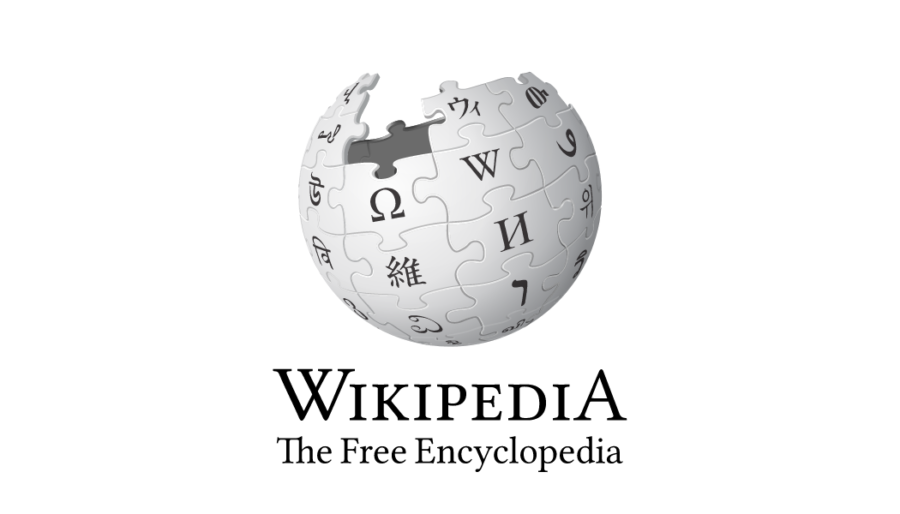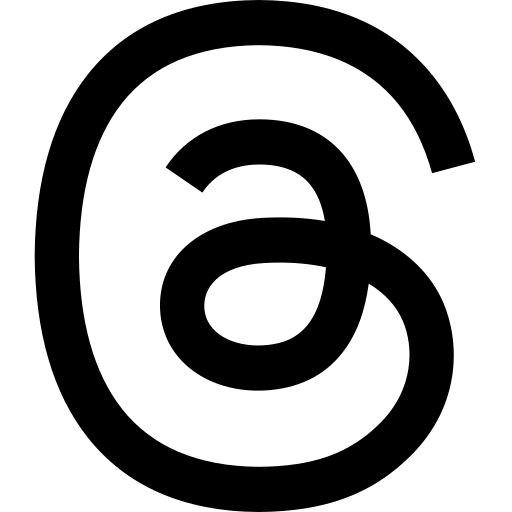Is Wikipedia a reliable source?
When I was in seventh grade, I joined my school’s debate team. I don’t remember most of our debates, but one memory sticks out very clearly. The topic was “Is Wikipedia a reliable source for research?”. My team was assigned to argue the opposition: no, Wikipedia is not a reliable source for research, which happened to be what I believed at the time. (My current belief is more like, “Yes, if you use it properly”. More about this later.)
What made this debate particularly memorable is that we went up against a team from THE crazy good school. This was the school that won every single debate competition, the school everyone was scared to debate, the school that the anti-cheating rules were probably put in place to respond to. Unsurprisingly, they absolutely decimated us.
Only one specific moment from this debate has remained in my memory. To support their argument that Wikipedia was reliable, the other team said that they had changed one number on the Wikipedia article for a Seattle sports team and the change had been undone within three minutes. I was shocked at the moment that they had put so much effort into their prep for this debate that they’d thought to actually put a purposely wrong fact in a Wikipedia article and see what happened (?!!). I don’t think my team was able to come up with any strong rebuttals to their piece of evidence, because we were busy being completely steamrollered.
After the fact, dwelling on what we could have done better, I thought about how their evidence was wrong because they’d only tried one article, and they’d picked a popular article that lots of people looked at. Of course, it had been fixed quickly. But you can’t just cherry-pick one article to prove your point. (I learned the phrase “cherry pick” in the debate team that year, and I was a big fan of it.)
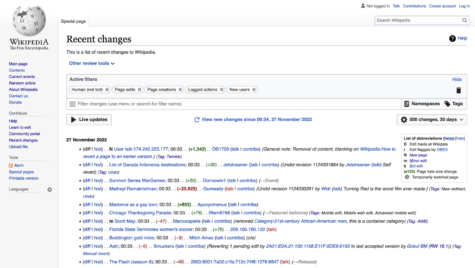
What I know now is that none of us middle schoolers really understood how Wikipedia works. The reason the other team’s change had been reverted quickly was not because Wikipedia catches all factual errors, or even because they’d picked a popular article. It was because there are a lot of Wikipedia editors who spend time watching the list of recent changes across all Wikipedia articles (even the really obscure ones), checking changes that look suspicious, and reverting them if they’re vandalism.
This other debate team probably made the edit from an IP address and didn’t create an account. They probably left no explanation in the edit summary. They just changed a number (which had probably been supported by a source) with zero explanation of why. All of these things combined make it incredibly obvious that their edit was vandalism. An experienced editor with the right gadgets enabled could revert an edit that was obvious vandalism with one press of a button. It’s mildly surprising that it even took three minutes.
Essentially, all that team had proved was that they were bad at vandalism, and Wikipedia is very good at reverting that kind of run-of-the-mill drive-by vandalism. The thing about being an encyclopedia that anyone can edit is that it’s very easy for someone to just slap the word “poop” on an article, or add themself to the “notable alumni” list of their high school, or, yes, randomly change a number to see how quickly it will be reverted. But because this is so commonplace, Wikipedia is very good at dealing with this low-effort vandalism. Recent Changes watchers will catch the vandalism quickly and revert it. If a user persists in vandalizing, they’ll be blocked. You can read more about Wikipedia’s policies for dealing with vandalism on this page.
The real threat to Wikipedia’s credibility is more insidious vandalism. As an illustration, check out Wikipedia’s list of hoaxes on Wikipedia. There are more than 50 examples on this list of completely fictitious, hoax articles that remained on Wikipedia for over ten years before being deleted. Let that sink in. More than 50 times, and probably even more that haven’t been found yet, someone has written a Wikipedia article about a completely made-up topic and had it last, without being discovered, for over ten years.
So, this is incredibly alarming. Here’s some good news, though: most, if not all, of these hoax articles, could be identified as hoaxes by the fact that they didn’t cite any sources. It would not be difficult for a casual reader to determine that they weren’t trustworthy, even if that reader didn’t put in any more effort than just glancing at the lack of citations.
If you take away only one thing from this article, here’s what it should be: if a Wikipedia article doesn’t cite any sources, or has very few sources that don’t seem to back up what it’s saying, don’t trust it.
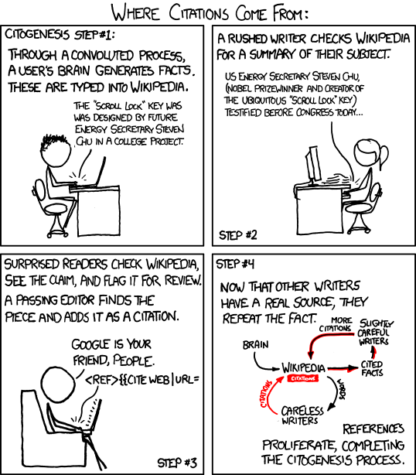
Some hoax articles or incorrect facts do, however, have citations, even citations that back up what they are saying. This was illustrated brilliantly in a popular xkcd comic strip titled “Citogenesis”. Wikipedia has a list of instances when this happened, too.
Although instances of citogenesis are much harder to detect, they can still be uncovered if you work at it. All Wikipedia articles have page histories that track all changes that have been made to the article. Using history, you can track down when a particular sentence was added to an article. For instance, say that in 2011, an editor added a claim that Steven Chu created the scroll lock key, but the news article that was added as a citation later to support that claim was published in 2012, and you can’t find any sources talking about Chu creating the scroll lock key published any earlier than 2011. In this case, it becomes quite clear that citogenesis took place, and a helpful editor can go ahead and remove the incorrect claim.
In addition to full-out hoaxes and citogenesis, there are many other types of insidious vandalism found on Wikipedia, like promotional writing and uncited statements, some of which may be tagged as such but many of which are hiding. This kind of unreliability is why people are frequently told not to use Wikipedia as a source for research. I agree with this, to some extent. You should not blindly trust everything you read on Wikipedia. You should not cite Wikipedia as a source in a big research project. You should not treat it as a full, comprehensive analysis of a complex topic.
However, there are lots of things that Wikipedia is great at. Here are a few things I use Wikipedia for frequently:
- During the Olympics, Wikipedia has updates on results that are faster, more comprehensive, and easier to find than many major news sites.
- If I’m trying to remember what productions an actor has been in, I check their Wikipedia article for the filmography table.
- When I’m working on my “stuff to know” packet for APUSH, I often come across people, terms, or events that I don’t recognize, and I usually look them up on Wikipedia for a brief overview (e.g. “this person was a general in the Union army in the civil war”).
- I am a big fan of the Wikipedia article List of presidents of the United States. I’ve been referencing it a lot this year for APUSH.
- If I’m researching a topic for an in-depth project, I often look it up on Wikipedia to get a general overview. Then, I then find the sources that are cited in the article and go check those out directly to see what they say about the topic.
- I look up plot summaries on Wikipedia for musicals and shows, knowing that they might be inaccurate in some places but will generally give me the gist of the plot.
Sometimes Wikipedia articles can be trusted, and sometimes they can’t. It’s not always possible to tell which is which from a quick look, but there are lots of hints that can clue you in.
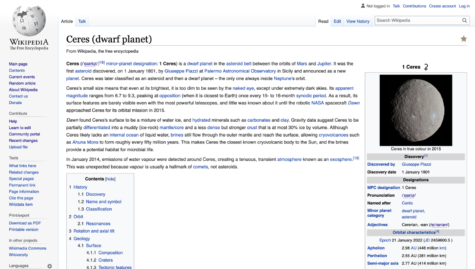
Things that tend to signify a trustworthy Wikipedia article:
- It has a “good article” or “featured article” icon in the upper right corner (a little green circle or a little bronze star, respectively). This means that it has been identified by the Wikipedia community as a high-quality article. Note that some articles have degraded since the point when they passed the review process, so you can’t automatically trust the icon, but it is an excellent sign that the article is likely to be trustworthy.
- The article is on a very high-profile topic, such that lots of editors are looking at it. For instance, the Wikipedia articles on “Donald Trump” and “COVID-19 pandemic” have many editors focused on keeping them as accurate and reliable as possible. The articles on the Olympics and common awards like the Tonys also tend to be reliable, because so many people work on updating them and quickly revert inaccurate changes.
- The article seems to be well-written and it has citations distributed appropriately, which seem to back up the statements in the article. This can occur even in articles that meet neither of the above conditions; sometimes an editor takes an interest in a niche topic and puts in the effort to improve the article, even if they don’t go through the full process to get it acknowledged as a good or featured article.
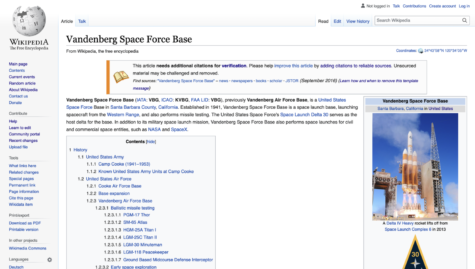
Things that tend to signify an untrustworthy Wikipedia article:
- It has maintenance templates at the top, like “This article needs additional citations for verification.” or “This article contains content that is written like an advertisement.”
- It has lots of “citation needed” tags throughout the article or simply has very few citations.
- It is an obscure topic that likely has not had a lot of attention devoted to it, so it would be easy for inaccurate information to be added without being noticed.
- It is very short. (The Wikipedia term for this is “stub.” Not all stubs are untrustworthy, but if it’s a stub and it lacks citations, don’t trust it.)
- There’s information that seems suspicious or makes you want to know more, but it isn’t backed up by a source.
Still, even an imperfect Wikipedia article can be good enough for your needs, depending on what your needs are. If you’re just trying to get a general overview of a subject, and it doesn’t really matter if you get a few small details wrong, most articles will be sufficient. However, if you’re using Wikipedia as a source for something you’re going to share, like a research paper or a newspaper article, please check what sources Wikipedia uses and cite those instead. You don’t want to be that person who perpetuates citogenesis! Also, if you see an unusual claim on Wikipedia and are about to repeat it to your friends (“today I learned this crazy thing!”), maybe take a second to double-check that it’s supported by a source before you share.
I am a huge fan of Wikipedia. It provides so much knowledge, right at our fingertips. If you just use a little caution and common sense, it can be an incredibly useful source. Just don’t misuse it!
Also, if you like Wikipedia, remember that everyone, including you, can edit it. You don’t even have to make an account. If you’re doing some quick reading and you come across a typo in a Wikipedia article, you can just go ahead and fix it. It’s very straightforward. And if you like Wikipedia and want to help expand it for the benefit of all, you can make an account and explore more substantive additions and improvements. Wikipedia is written by people like you and me!



